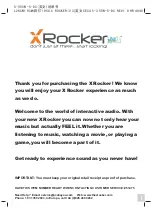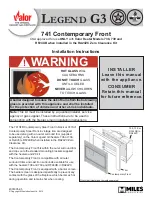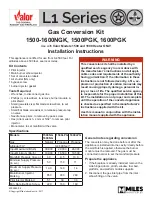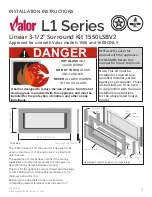
tivated with a simple movement and easily lifted up to restore the normal conditions
of visibility and protection guaranteed by the approved helmet visor.
To deactivate the VPS push the side slider completely downwards (Fig. 11 A).
To completely activate the VPS push the side slider completely upwards (Fig. 11 B).
The VPS is adjustable in a range of intermediate positions to ensure the best com-
fort for the user with respect to the terms of use.
Precautions For Use
The current approval standards (ECE22-05) state that the visor minimum light tran-
smittance levels must be greater than 80% when riding at night and not less than
50% when riding during the day. For this reason, under particularly bright weather
conditions, e.g. very strong sunlight caused by high intensity and/or incidence of the
sunbeams, the use of sunglasses - which entail a transmittance much lower than
50% - turns out to be advisable, if not absolutely necessary. This in order to reduce
eye fatigue on long trips. Sunglasses also reduce the risk of direct dazzling as oppo-
sed to the use of mere approved helmet visors. However, the use of sunglasses
makes it difficult to perform emergency manoeuvres when the maximum visibility
range of the helmet visor must be quickly restored. Just think, for example, of what
happens when you enter a tunnel or when unexpected changes in environmental bri-
ghtness occur. Thanks to its operating mechanism, the VPS makes these operations
much easier.
WARNING
-
The VPS can be used only during the day and under the environmental conditions
described before.
-
At night and/or in poor visibility conditions, the VPS
must
be deactivated.
-
Always check that the VPS is properly positioned according to the different
weather/environmental conditions and/or to the above mentioned recommenda-
tions for use.
-
We recommend using the VPS only and solely together with the approved stan-
dard visor, which has a transmittance value greater than 80%.
-
The VPS does not replace the protection guaranteed by the visor.
-
Always make sure that the VPS is clean and that it is operating properly in order
to avoid scratches and/or anomalous wear on it every time it is activated.
-
As for VPS and visor maintenance and cleaning operations, please refer to the
appropriate section in the helmet user’s manual.
-
The VPS scratch-resistant and fog-resistant treatment highly reduces fogging.
Protracted periods of adverse weather and/or environmental conditions might
cause fogging and/or formation of condensation on the VPS, which entails a
reduction of visibility and/or sharpness of vision: in this case, deactivate the
VPS.
-
In case of rain, the direct contact of raindrops with the scratch-resistant and
fog-resistant treated VPS quickly reduces sharpness of vision, thus causing
scarce visibility: in this case, deactivate the VPS.
18
N40 OK_N104 0072 14/01/14 16.07 Pagina 18
Summary of Contents for N40 FULL
Page 82: ...82 N40 OK_N104 0072 14 01 14 16 07 Pagina 82...
Page 83: ...83 E v N40 OK_N104 0072 14 01 14 16 07 Pagina 83...
Page 85: ...4 0 4 3 B 5 4 4 1 5 4 2 4 3 0 4 0 6 0 0 85 N40 OK_N104 0072 14 01 14 16 07 Pagina 85...
Page 92: ...Fig 2 A Fig 2 B Fig 1 Fig 4 Fig 3 A A 0 N40 OK_N104 0072 14 01 14 16 07 Pagina 92...
Page 93: ...Fig 5 B B B B 0 Fig 6 Fig 7 Fig 8 N40 OK_N104 0072 14 01 14 16 07 Pagina 93...
Page 95: ...Fig 16 Fig 17 B Fig 18 Fig 17 A Fig 19 A B N40 OK_N104 0072 14 01 14 16 07 Pagina 95...
















































